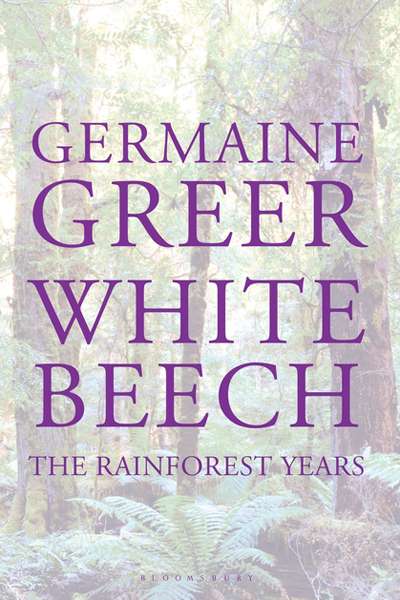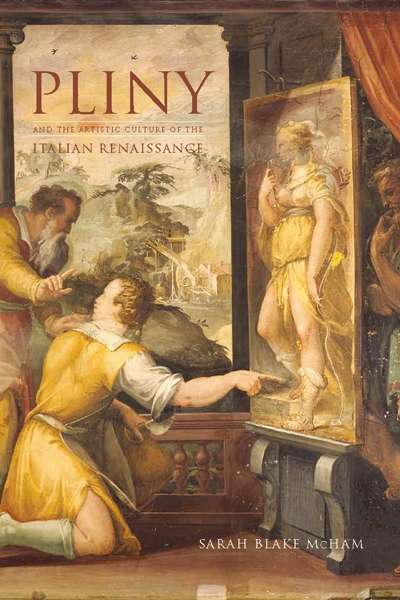Non Fiction
John Thompson examines Germaine Greer’s sober, meditative, deeply moving account of her efforts to regenerate sixty hectares of degraded rainforest in the Gold Coast hinterland.
... (read more)Broken Nation: Australians in the Great War by Joan Beaumont
If you read only one book about Australia’s experience of World War I, as the deluge of commemorative publications marking the outbreak of the war becomes a veritable tsunami, make it Broken Nation, an account that joins the history of the war to the home front, and that details the barbarism of the battlefields as well as the desolation, despair, and bitter divisions that devastated the communities left behind.
... (read more)Changing Gears: A Pedal-powered Detour from the Rat Race by Greg Foyster
With resource shortages looming and climate change a topic of intense discussion, it is becoming increasingly important for people to find ways to reduce their day-to-day consumption and carbon footprint. Greg Foyster’s Changing Gears seeks to explore the question of how to do so through the author’s own interesting, and no doubt exhausting, cross-country journey toward a greener way of living. Setting out to cycle from Melbourne to Cairns via Tasmania, which makes more sense in context, Foyster and his partner used the journey to force themselves into the sparse life of bicycle travellers, while visiting and interviewing a number of prominent experts and practitioners of conservation, green living, and social dynamics.
... (read more)Writing a memoir at the age of thirty may seem like an exercise in self-indulgence: what wisdom could one possibly impart amid the universal tumultuousness of the Saturn Return? Seemingly aware of the predicament, the author of Banana Girl doesn’t pretend to deliver any answers, her memoir instead giving a more immediate snapshot into the life of a twenty-something; specifically, the life of Michele Lee, an Asian-Australian playwright on the cusp of thirty, living in Melbourne’s inner north.
... (read more)Last week I received an envelope in the mail, the address written in my father’s hand. My heart accelerated a little and it struck me as unseemly, at my age and in my circumstances, to be still so easily rattled by a parent.
... (read more)Queen's College the University of Melbourne: A pictorial history 1887–2012 edited by Jennifer Bars, Sophia T. Pavlovski-Ross, and David T. Runia
Notwithstanding occasional media focus on misbehaving students or senior members, the residential colleges and halls dotted around or about most Australian university campuses keep a low profile. Their influence has undoubtedly declined since the early twentieth century, when as many as one quarter of Melbourne’s enrolled undergraduate population, and a much higher proportion of full-time students, were attached to Trinity and Janet Clarke Hall, Ormond or Queen’s. But the collegiate ideal to which all these institutions aspire, more or less, still provides a vital alternative to the regrettably prevailing view of higher education as mere vocational training – especially now, when the future viability of universities themselves is called increasingly into question.
... (read more)Henry Friendly: Greatest judge of his era by David M. Dorsen
Henry Friendly was a judge of the highest reputation – greater than Learned Hand in Justice Scalia’s opinion. His output was prodigious, his legacy unmatched: of his fifty-one clerks, twenty-one (including the present incumbent) became justices of the Supreme Court of the United States; in that Court’s decisions, only Learned Hand was cited more often than Friendly.
... (read more)For the True Believers: Great Labor speeches that shaped history edited by Troy Bramston
Gough Whitlam’s famous words during his impromptu speech after the Dismissal in 1975 remain a potent symbol of the excitements and turbulence of the Whitlam era. As Troy Bramston’s collection of ALP speeches since 1891 reminds us, political speeches can capture a national mood or sentiment at a particular time in history. Indeed, a carefully crafted set of words can become a treasured part of our national self-image. They can also boost or destroy a politician’s reputation. In an age when the media has become uncritically obsessed with gaffes, Twitter banalities, polls, and sound bites, it is worth remembering that a good speech can elevate the national conversation and appeal to our better instincts.
... (read more)Pliny and the Artistic Culture of the Italian Renaissance: The legacy of the 'Natural History' by Sarah Blake McHam
When the intellectuals, writers, and artists of the Renaissance sought a theoretical basis for the new styles they were developing – at a time when the new meant all’antica and the term modern was still coloured by associations with the Middle Ages – they found that ancient sources were relatively abundant in some areas and scarce or non-existent in others. Poets could find inspiration in Horace’s Ars Poetica, and later in Aristotle’s Poetics. And there was a wealth of material on rhetoric – Aristotle, Cicero, Quintilian, Tacitus – in fact an abundance out of all proportion to the practice of the art in an age when public speaking was represented by sermons and university lectures rather than by the deliberative and forensic oratory that were the lifeblood of Greece and Rome.
... (read more)English as a Vocation: The Scrutiny movement by Christopher Hilliard
Christopher Hilliard’s meticulously researched and richly detailed English as a Vocation: The Scrutiny Movement opens with a historical anecdote regarding an after-hours, postwar negotiation ‘between literary analysis and popular culture’ undertaken in that most evocative of English holiday destinations: Scarborough. In these opening lines, Hilliard describes how the founder and director of Birmingham University’s renowned Centre of Cultural Studies, Richard Hoggart, working in an earlier capacity as an adult education tutor in North Yorkshire, spent his evenings in the late 1940s combining classes on Shakespeare with sessions scrutinising advertising rhetoric and the language of newspaper articles.
... (read more)








